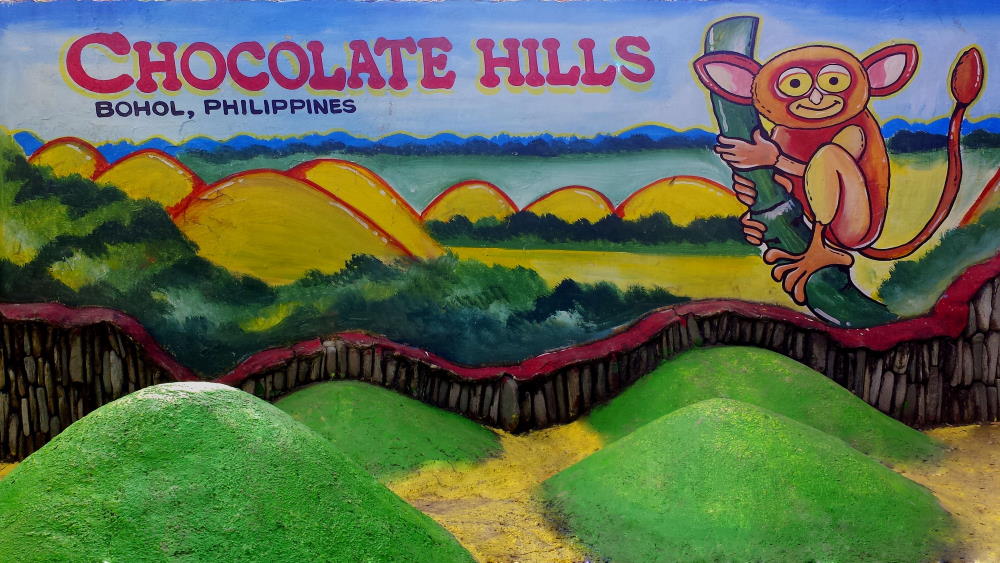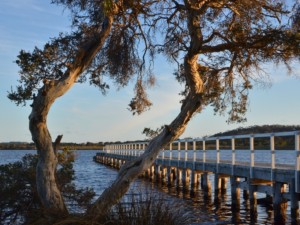Good news in tourism February 9 – 15, 2020

It’s time to choose your own adventure! Posted on Sunday to be ready on Monday, “Good news in tourism” is the perfect pick-me-up for the start of a work week. And go!
Important “GT” stuff first:
“GT” is open to orthodox and heterodox ideas. For those who would like to share their unique perspective on what does or should make tourism good, please download the updated “GT” Insight guidelines.
“GT” is open for business as well, so please download and peruse the updated “GT” partnership opportunities.
And for those who would prefer to privately and anonymously support “GT”, please …
Thank you! And thanks to all “GT” Friends. “GT” can’t do this without you!
This week’s good news in tourism, in no particular order:
Not good as such, but important: Probably the most credible source of information about the coronavirus COVID-19 is the World Health Organization (WHO).
Chen Xianchun, director of the Department of Culture and Tourism of Hunan province, China, in a thank you letter to foreign friends dated February 9: “According to the Chinese lunar calendar, it is now the beginning of spring. I believe that the severe winter has passed […] Once the epidemic has disappeared, we are looking forward to meeting you in our beautiful Hunan province.” Hunan province is to the south of Hubei province whose capital Wuhan is the epicentre of the COVID-19 epidemic.
Meanwhile, President Donald Trump wants the USA to rejoin the UNWTO, but a conservative think tank disagrees. What’s the good news here? Is it the desire to rejoin the UNWTO? Is it the opposition to rejoining? Or does a low-resolution “orange man bad” attitude make nothing about this good? It’s up to you. It’s a choose-your-own-adventure here at “Good news”!
Less controversially, travel & tourism is the primary reason for a significant decline in poverty from more than half (50.2%) of Bohol’s population in 2000 to 15.2% in 2020. That’s according to Kathyrin D Piquinto, the Administrator of Bohol province in the Philippines, who acknowledges that Bohol must avoid the pitfalls of overtourism.
The planet vs people & their profit
Wilderness conservation and rewilding programs for their own sake may be moral imperatives in the hearts and minds of some, but that might not sit well with locals who want or need to improve their living standards. People and their profit — where “profit” may include passion or some other human incentive — cannot be ignored.
In Romania more than 100 local families are benefiting from the ecotourism opportunities that have arisen from rewilding the Southern Carpathians and reintroducing bison. Both the humans that profit from tourists and the bison that attract the tourists are vested stakeholders in the success of the rewilding program.
However, as much as we might like to think otherwise, ecotourism alone is not enough to raise the living standards of a country of more than 2 million people that is 88% rainforest. This is according to Gabon’s Environment Minister Lee White. In order to employ people and maintain forest coverage, sustainable logging has become an important industry for the west African republic. By banning the export of unprocessed logs and retaining much of the value chain “[we] are making the resource more valuable and it’s going to push us to manage our natural capital with much more care”.
To readers who like to believe that sustainable tourism is realistic but feel that sustainable logging is a contradiction in terms … check your bias. “GT” suspects that sustainable tourism and sustainable logging are both worthy ambitions with massive challenges. The alternative is that they are both naive fantasies. Best we stick to the worthy ambition hypothesis, eh?
More forest-related coverage:
The forestry industry has potential to conserve “areas of importance [and] species of interest for nature-based tourism”, Kevin Jones of the Soil Association said.
USD 260,000 in state grants will be disbursed to assist towns in Massachusetts, USA’s “most rural areas [to] conserve forests and promote nature-based tourism”.
Loco about local
Local media that reports on the deliberations of local government is a beautiful thing to behold! It’s what happens in a democracy with a free press. The more local it is the better it seems. Community-based journalism is good at the old-school basics of hard news reporting — laying out facts and attributing opinions — because the consequences of lies and bias land close to home.
Influenced by factors far removed from the ‘hood, political journalism at the national and global level is a mess. Who knows where the consequences of falsity and partisanship will land? It is perhaps why many people, including some “journalists” whose job is to “inform”, have been shell-shocked to the point of PTSD by the results of certain elections since 2016. The voters are deplorable they conclude … wrong-headedly.
The situation is much the same with tourism policy making. It is nonsensical at the global level. (Do Gabon and Romania have the same tourism priorities? Not really.) It is not much better at the national level. (What does Hunan and Hainan have in common other than the PRC? Not much.) Yet people are surprised by certain outcomes, such as overtourism and its symptoms, including overt hostility to tourists and a simmering resentment of the tourism industry.
Even local authorities can be out of touch, of course. A perfect example is from a survey of residents and businesses of San Juan Islands, Washington state, USA. Results were published during the week. According to one finding, “there was wide acknowledgement among residents that vacation rentals reduce long-term housing affordability”, which is reportedly counter to the County’s prior position.
While they may not have perfect knowledge, locals are best-placed to determine the travel & tourism policy priorities for their patch. Sure, the entrepreneurs among them might tell established brands to go away. (Sorry potential “GT” Premier Partners, but it is a possibility.) If their place relies on aviation access, locals might tell flight-shamers to take a leap. (Nudge nudge wink wink potential “GT” Travel Partners.) And they might even tell foreigners that they are not welcome. (Xenophobia? Maybe. The Sentinelese certainly suffer from it.)
But who has the right to contradict them? Do you? Does your national tourism office? Does the United Nations World Tourism Organization (UNWTO)?
Treat your host community with more respect. If it is suffering the effects of earlier top-down, outside-in impositions from multiple layers of government and the tourism industry, the last thing a community needs is more of that.
In any case, tourism policies seem to make more sense when they are community-based. Simply getting started can deliver immediate benefits to the community and the environment, such as cleaning up beaches in Mumbai, India as reported during the week. And the end result has the potential to be more palatable for locals, more authentic for visitors, and more likely to be sustainable, such as this Indigenous community-based ecotourism business in the Rupununi region of Guyana.
An expatriate in Croatia pondered the same basic idea in an opinion piece published on Friday: “The concept of tourism and community is under attack from overtourism in general, but I wonder if a little more attention and initiatives to strengthen the relationship between tourism and the community might yield a better tourism experience for both sides …”
Anyway, what inspired all of that is an innocent story about a proposal to restore the period home of a former mayor and turn it into a museum and “tourism hub” for Westwood, New Jersey, USA. (No-one outside of Westwood will care about the story. It’s fine local media coverage … It’s real. It’s specific. And it’s good!)

Odds & ends
Newsy bits that don’t easily fit into this week’s arbitrary clusters:
The Sultanate of Oman is looking to travel & tourism to help shift a “stubbornly high youth unemployment rate”.
Sweden’s state-owned airport operator Swedavia wants to facilitate the first fully-electric commercial aviation route by 2025 and for all 10 of its airports to be ready for electric aviation by then.
India’s Odisha state is set to expand and diversify its water-based tourism and ecotourism products along its “482-km coastline and eight major reservoirs besides Asia’s largest brackish water lagoon Chilika and several other pristine water bodies”. And it is with the technical support of a Keralan organisation.
Kerala, India is looking to add ‘a leader in cultural heritage tourism’ to its reputation as a leader in responsible tourism, as authorities set their sites on a range of different projects. One of these is a Spice Route project, which proposes the involvement of 31 countries that have had historical trade links with Kerala. The Netherlands is one of them …
Rather than promoting the Netherlands as a tourism destination, the new priority for the Netherlands Board of Tourism & Conventions is to manage the flow of tourism, especially in the capital Amsterdam. City officials’ focus is set on attracting visitors who contribute — the “untourists”.
Maybe they can send the tourists to Kerala.
Have a good week!
Featured image: The Chocolate Hills and tarsiers; two tourism-attracting reasons poverty rates have plummeted in Bohol province, the Philippines. Photo by Macario Jr Decena (CC0) via Pexels.
To help your correspondent keep his energy-efficient lights on, please consider a private one-off gift or ongoing donation. THANK YOU to those who have! <3
Disclaimer 1: It is “GT’s” policy to fully disclose partner/sponsor content. If an item is not disclosed as partner or sponsor-related then it will have caught “GT’s” attention by some other more organic means. Partner with “GT”. You know you want to.
Disclaimer 2: None of the stories linked from this week’s post have been fact-checked by “GT”. All terminology used here is as the linked sources used it according to the knowledge and assumptions they have about it. Please comment below if you know there has been buzzword-washing or blatant nonsense relayed here, but be nice about it as the linked sources might get offended. (“GT” won’t.) And as for “GT” bringing it to your attention so that you might be the one to set the record straight, you are welcome! 🙂





